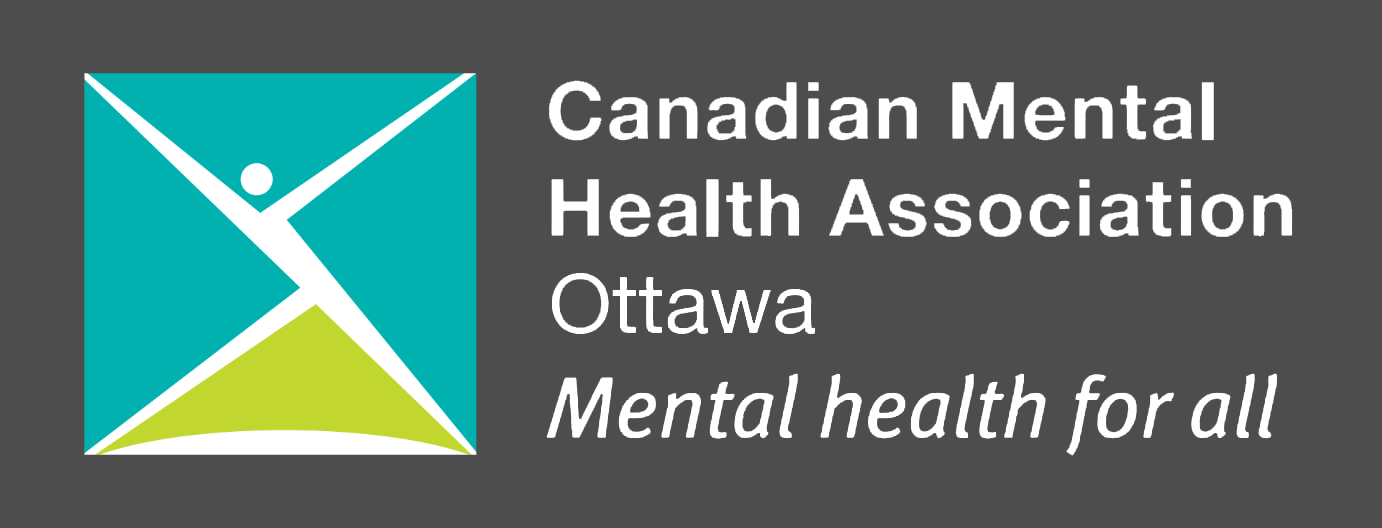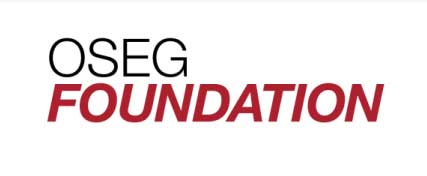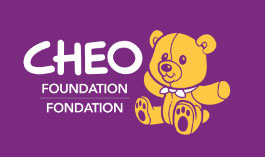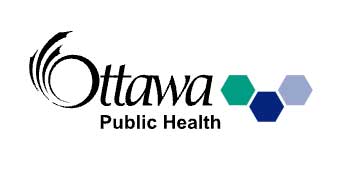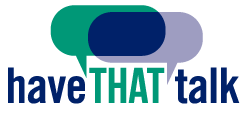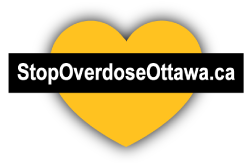
Lighting the Path to Mental Health
Like so many in Ottawa, the Celebright team, their families and friends have been touched by mental health challenges. We've also seen first hand the difference a support system can make, and we've been inspired to do our part in supporting the mental health programs in our City.
The Twinkle Tunnel reminds us that mental health is a journey. There is hope and there is help.
Get involved, and help light the path to mental health

The Twinkle Tunnel on location at the Ottawa Christmas Market
Our Partners
Canadian Mental Health Association
The Canadian Mental Health Association (CMHA Ottawa) is an independent, community-based non-profit organization and registered charity. It plays an important role in the overall mental health care system, supporting its clients where they live — in their community. CMHA Ottawa primarily provides programs and services for individuals in the Ottawa area living with severe and persistent mental illness and/or substance use disorder, many of whom are experiencing chronic homelessness.
visit: ottawa.cmha.ca
CMHA Ottawa's mission:
· To offer evidence-informed services for individuals experiencing mental illness and/or substance use disorder
· Promote positive mental health for all
· Promote an integrated system of mental health services in collaboration with clients, families, service providers and other stakeholders
“CMHA Ottawa has had a huge impact on my life. They contacted me when I was at my lowest point and helped get me to where I am today. The staff is amazing, and they really put their clients at the forefront of their recovery. I wouldn't be where I am today without this organization and am very grateful!” —Acacia, graduated client and peer advisor
HOT OFF THE PRESSES: Check out CMHA Ottawa's 2023-2024 Impact Report
Want to learn more about CMHA Ottawa? Take a deeper dive:
Programs and Services at CMHA Ottawa
CMHA Ottawa’s case management services provide intensive long-term supports for individuals living with severe and persistent mental illness who are experiencing chronic homelessness or may be at risk of homelessness. They may have a concurrent disorder (mental health diagnosis and problematic substance use) or be involved in the justice system.
Community support workers and clients work together to develop goals and plan for an eventual transition out of services and into the community. These supports include housing, systems navigation, intensive case management, services for frequent hospital emergency visitors for mental health concerns, peer groups, and more.
CMHA Ottawa's outreach services help individuals with complex needs and mental illness and/or substance use disorder in developing goals and connecting with ongoing supports to maintain housing and stability.
There are three types of outreach services: court, hospital and housing.
Housing at CMHA Ottawa
CMHA Ottawa is one of the largest providers of Housing First in Canada
In the Housing First model, people experiencing chronic homelessness in addition to mental health and addictions issues are provided with independent and permanent housing of their choosing—without conditions—prior to additional supports and services. Housing is the first step to recovery.
In 2022-2023, 81% of CMHA Ottawa clients were successfully housed. That year, 251 individuals were helped by its Housing Outreach Team in finding and/or maintaining a home of their own. Additionally, the branch owns and operates an award-winning 41-unit scattered site condominium program that is widely considered by experts to be an exemplary model of the Housing First philosophy in action. Its Housing Team also administers more than 600 rent supplements.
CMHA Ottawa's specialty services include case management for individuals with a dual diagnosis (mental illness in addition to intellectual or developmental disabilities), peer services (persons with lived experience), nursing, youth services, concurrent disorders treatment and groups, counselling services, and more.
“At almost every Board meeting, someone from the frontline staff comes in to talk about their job. We hear these stories that are mind-blowing that they take in stride as they create these miracles. With so much stigma experienced by the people we serve, and negative press about homelessness, mental illness and addictions, we must turn our focus on breaking the stigma, humanizing the most vulnerable in our community, and empowering them to get better. We save lives every year, if not every day." -Lynne Vail, Vice-Chair of the CMHA Ottawa Board of Directors and peer advocate
OSEG Foundation
The goal of the OSEG Foundation is to ensure all children and youth in our community can play, learn and develop through sports. Through positive youth development programs, the OSEG Foundation improves physical and mental health, develops skills, character and leadership, and fosters inclusion through sport.
visit: osegfoundation.ca
REDBLACKS Mentorship Program
The REDBLACKS Mentorship program is a vital initiative with a mission to empower youth aged 14 to 18, who reside in low-income and priority communities. The program aims to provide youth from low-income, Black, and culturally diverse communities with the invaluable opportunity to forge connections with compassionate adult mentors who can offer crucial support during pivotal stages of their growth. With limited access to extracurricular activities, mentorship, and positive role models, underserved youth often find themselves enticed by street and gang-related activities, while contending with feelings of hopelessness and diminished self-esteem. Addressing these challenges head-on is imperative, as they serve as pivotal factors in breaking the cycle of poverty and inequity entrenched within the lives of underserved youth.
This program directly addresses the pressing issues of adversity, racism, and discrimination that these young individuals face. Through individual one on one mentorship and group mentorship led by REDBLACKS athletes, the program works to equip its youth participants with the essential skills, confidence, and resources required to navigate these challenges successfully, graduate from high school, and ultimately emerge as confident, successful adults.
Champions Program
Youth from military families are resilient; however, they also face a number of unique challenges such as repeated relocation, absences of one or both parents, parental deployments to volatile areas and unpredictable work hours for their parent(s). Because of these experiences, youth may experience heightened feelings of stress and lower mental health.
The 10 week program focuses on the 7 C’s of resiliency (competence, confidence, connection, character, contribution, coping, and control) to empower youth with knowledge of the role they play in their own health and wellness and equip them with the tools to react to challenges. The program also introduces and builds connections between youth in similar lifestyle challenges and introduces role models and mentors like the Ottawa REDBLACKS athletes to support the participants.
CHEO Foundation
CHEO provides a wide range of inpatient, outpatient and day treatment programs for mental health. The CHEO Foundation funding helps these programs meet the changing needs of the community - like addressing the increasing risks of suicide and self-harm facing children and youth, and managing the growing use of the Emergency Department for primary mental health care. (Last year, CHEO’s Emergency Department saw more mental health visits than any other pediatric hospital in Ontario, with 3,175 mental health visits.) The CHEO Foundation funds crucial programs such as 24/7 emergency room counsellors and 1 call 1 click a Kids Come First Health Team initiative that helps match children, youth and their families with the resources that are needed, when they are needed.
visit: cheofoundation.com
1 call 1 click helps match children, youth and their families with the right mental health services. An initiative of the Kids Come First Health Team, this bilingual service brings together 33 local providers. It is a key tool to navigate mental health resources and find what is needed, when it is needed.
24/7 Child and youth counsellor positions provide round-the-clock care as part of the CHEO Mental Health Emergency Department team. Last year CHEO's Emergency Department saw more mental health visits than any other pediatric hospital in Ontario, with 3,175 mental health visits. These counsellor positions fill a critical gap, working in crisis de-escalation, assessing patients, and connecting families to community care teams.
Dialectical Behaviour Therapy (DBT) supports those who have difficulty managing their emotions that can lead to suicidal thoughts, self-injury, family conflict and school problems. The program provides therapy and tools to manage behaviours and intense emotions.
Head to Toe at CHEO is a mental health screening initiative for all kids 12 years and older, who are admitted to CHEO for any reason. Like a physical head to toe exam, it provides critical insight into the child’s overall well-being.
Youth Net/RéseauAdo(YNRA) uses peer to peer discussion about mental health to help combat stigma around mental health in young people, and encourage them to seek support when needed.
Addiction counselling from Ottawa's Rideauwood Addiction and Family Services helps train CHEO staff and works with patients after discharge. This type of follow-up counselling helps make long-term recovery a realistic possibility.
Ottawa Public Health
Ottawa Public Health works to support public policies that make Ottawa and its residents healthier and safer. Protecting and promoting health and preventing disease is part of everything that we do. To learn about resources and services for Mental Health, Addictions and Substance Use Health, please visit ottawapublichealth.ca/mentalhealthandwellness
visit: ottawapublichealth.ca
Mental health is an important part of our health. Positive mental health is the core for a person's well-being. Good mental health allows a person to reach their potential and deal with normal stresses of life.
No matter our age, we all get stressed. Stress affects our mental health. Positive coping skills can help improve our mental health. Through positive coping skills a person can build resilience. Resilience allows a person to better handle the normal stresses of life and overcome challenging situations.
Do not feel ashamed of speaking to someone about mental health concerns and seeking help. It is important to seek help early. It is important to speak to one another about mental health - this can help us increase dialogue, knowledge, and help-seeking, while reducing stigma.
A new online stigma training is now available! Learn about stigma and how the language we use around mental health, addictions and substance use health can impact our community. Strategies to help reduce stigma are shared, along with tools to communicate about mental health, addictions and substance use health in a supportive way. Take it at your own pace and get a certificate of completion.
If you are concerned about your mental health or someone else, speak to your health care provider or check out the Mental Health, Addictions and Substance Use Health Resource List. For information about mental health about your infant, child or youth, please visit our Parenting in Ottawa mental health page.
If you or someone requires support related to suicide, please contact the 9-8-8 Suicide Crisis Helpline (24 hours a day/7 days a week, bilingual) or the Distress Centre Ottawa and Region (24 hours a day/7 days a week, bilingual) at 613-238-3311.
If you have a youth in crisis, contact the Youth Services 24/7 Crisis Line (24 hours a day/7 days a week) at 613-260-2360 of if outside Ottawa toll-free at 1-877-377-7775.
Looking For Help?
You do not have to do it alone.
Reach out to a friend, family member or a service in the city.
Ottawa Public Health has created an extensive list of services and resources for Mental Health, Addictions and Substance Use Health.
Navigating services can be challenging. On this site you will find variety of programs and resources in Ottawa to help you or someone you know find supports, information and resources.
Simple tips to take care of your own mental health:
Courtesy of the Canadian Mental Health Association, Ottawa Branch (CMHA Ottawa):
This website does not provide mental health advice.
If you or someone else is in a crisis situation, please do not wait.
Suicide Crisis Helpline - dial 988
Youth Services Bureau 27/7 crisis line for youth ages 12-17: 613-260-2360
Kids Help Phone: 800-668-6868
If you are in immediate danger, Call 911
Get Involved - How Can I Help?
Level Up Your Skills
The Have THAT Talk series was developed to raise awareness about the importance of mental health in all areas of our lives. Everyone can take action to promote mental health where we live, work and play. Check out these videos and activity guides to learn how you can take action to reduce stigma, increase support, and encourage people to get help sooner.
Stop Overdose Ottawa is a centralized space to share evidenced based information about prevention, education and treatment. The StopOverdoseOttawa website is mobile friendly and includes sections to address the needs of various audiences such as parents, youth, and professionals.
Be a Mental Health Ally
Each of us can be a mental health ally to our friends, family and community. You can:
- Ask how you can help
- Listen without judgement or telling the person what to do
- Talk openly about mental health, mental illness, and substance use
- Share your own story
- Advocate to all levels of government for better funding for mental health and substance use healthcare, and safe, affordable housing for everyone
- Watch out for your family, friends, neighbours and community; look for signs of suicide and take action: call or text the Suicide Crisis Helpline at 9-8-8
- Educate yourself about mental health facts and issues, and help fight stigma
- Create workplace policies that are responsive to mental health issues and foster a supportive environment
- Carry naloxone it's free and available at a pharmacy near you
- Get involved volunteer or mentor; if you have lived experience, consider becoming a peer
- Donate to charities and projects in our community can bring crucial programs and services to life
Donate
Donate to the charities and projects in our community, and help bring crucial programs to life:
OSEG Foundation
DonateCMHA Ottawa
DonateCHEO Foundation
DonateWe each have a role we can play. Help light the path to mental health.
